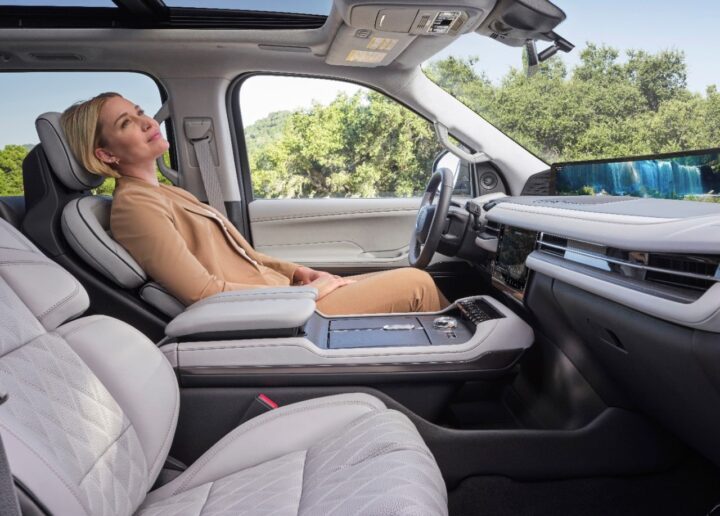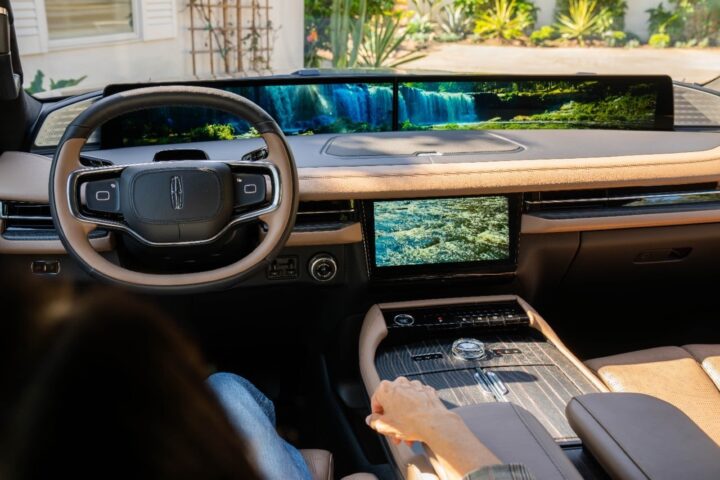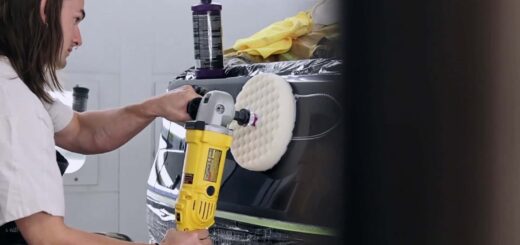The Lincoln Rejuvenate feature is what the luxury brand refers to as a “spa on wheels,” as it automatically adjusts seat position with heat and massage options, climate control, scenting, sound, lighting, and expansive visuals to “reduce stress and create a relaxing experience inside the vehicle.” It’s just one of several new such features that the brand is working on, and was just added to the 2025 Lincoln Nautilus after a slight delay, along with the 2025 Lincoln Navigator. Turns out, Lincoln Rejuvenate has been scientifically proven to be effective, too.
Lincoln recently commissioned a survey from Wakefield Research, which ultimately found that 53 percent of Americans struggle to find a suitable place to unwind, making relaxation a real challenge. As such, it set out to develop a multi-sensory in-vehicle experience that “transforms the cabin experience and brings sanctuary moments to life.” From there, Calandra Berry and Justine Nestorowich, two Lincoln Vehicle Harmony Engineers behind its development, partnered with Purdue University on a project called The Science of Rejuvenate, which aimed to find out if that feature actually works as intended.
The study – In-Vehicle Multi-Sensory Experiences Can Reduce Mental Stress, recently published in Applied Ergonomics – involved 43 participants who first underwent a stress test, after which they were subjected to the following conditions – a control group without the Rejuvenate experience, a group using Rejuvenate without scent therapy, and a group using Rejuvenate with scent therapy.
Ultimately, both groups in the Rejuvenate study showed lower heart rates and brainwave patterns linked to better emotional balance and deeper relaxation. Using brain and heart measurements (EEG and ECG), the study showed notable improvements – an average heartbeat decrease of 33 milliseconds and a five-millisecond reduction in heart rate variability – both indicators of reduced stress and increased relaxation. Additionally, 98 percent reported that they preferred the Rejuvenate experience over the control environment, and 62 percent expressed interest in using it regularly.

















No Comments yet